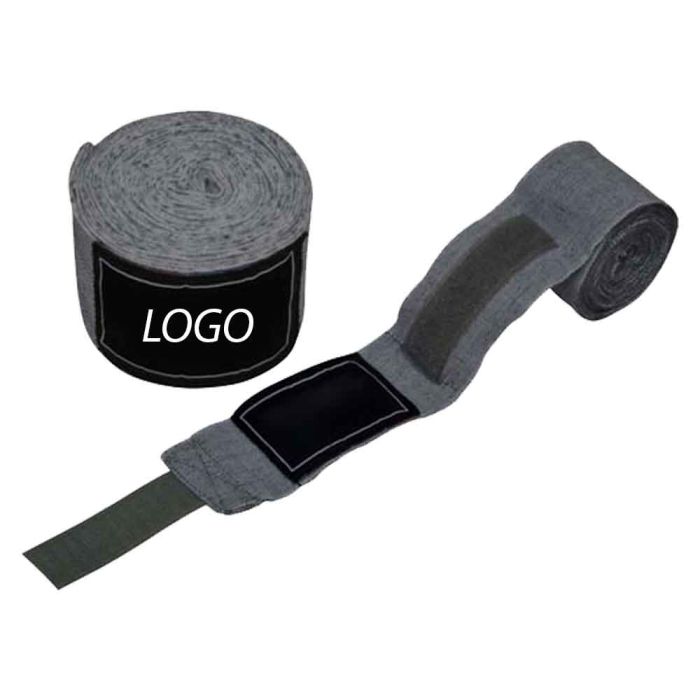Custom Hand Wraps
Handwraps for boxing are a critical piece of protective gear for boxers at any level, from beginners to professionals. These wraps are designed to provide essential support to the hands and wrists, safeguarding against injuries while enhancing performance during training and competition. By stabilizing the joints and compressing the bones of the hand, they help minimize the risk of fractures, sprains, and other hand injuries that can occur when throwing punches.
The primary function of boxing handwraps is to protect the small bones in the hands by dispersing the impact forces during punching. When tightly wrapped, they compress the tissues and bones, reducing the chances of bone displacement or skin damage. They also serve to protect the wrist by limiting excessive movement and adding an extra layer of support, preventing hyperextension or sprains when landing a punch.
Boxing handwraps are typically made from a blend of materials such as cotton, polyester, and elastic fibers like spandex. Cotton ensures breathability and comfort, while polyester adds durability. Spandex or other elastic components allow for a snug fit, which is essential for proper protection and security. The length of the wrap, often around 180 inches, allows for thorough wrapping of the knuckles, wrists, and thumb to ensure full protection.
A good pair of boxing handwraps will also feature a secure Velcro or hook-and-loop closure system. This ensures that the wrap stays firmly in place during intense sessions and can be easily adjusted for a customized fit. Many wraps also come with a thumb loop, making the wrapping process easier and ensuring a secure anchor point.
In addition to protection, boxing handwraps also offer comfort by preventing sweat buildup. Some handwraps are designed with moisture-wicking properties, ensuring that the hands remain dry, which helps prevent the gloves from slipping during training or sparring.
In summary, boxing handwraps are a vital tool for protecting the hands and wrists of boxers. By providing support, stability, and comfort, they allow fighters to train and compete effectively while minimizing the risk of injury.




